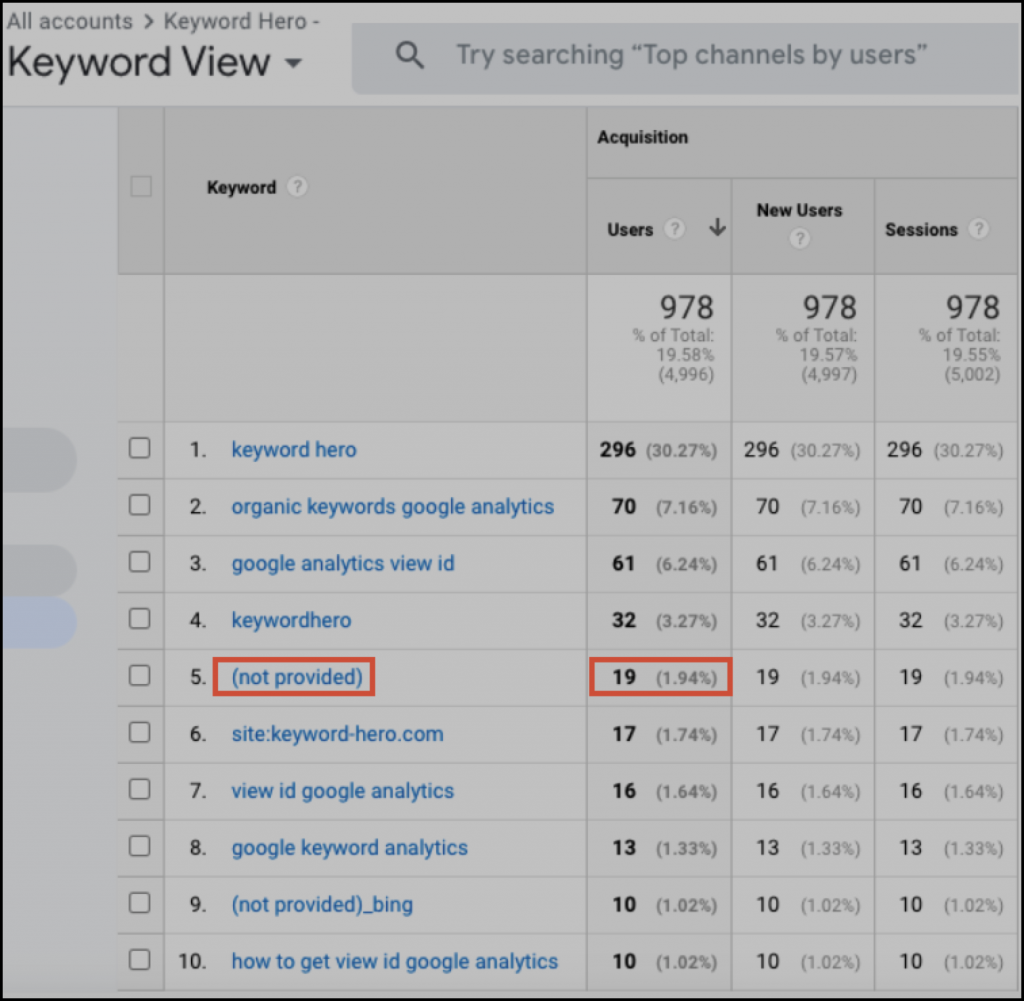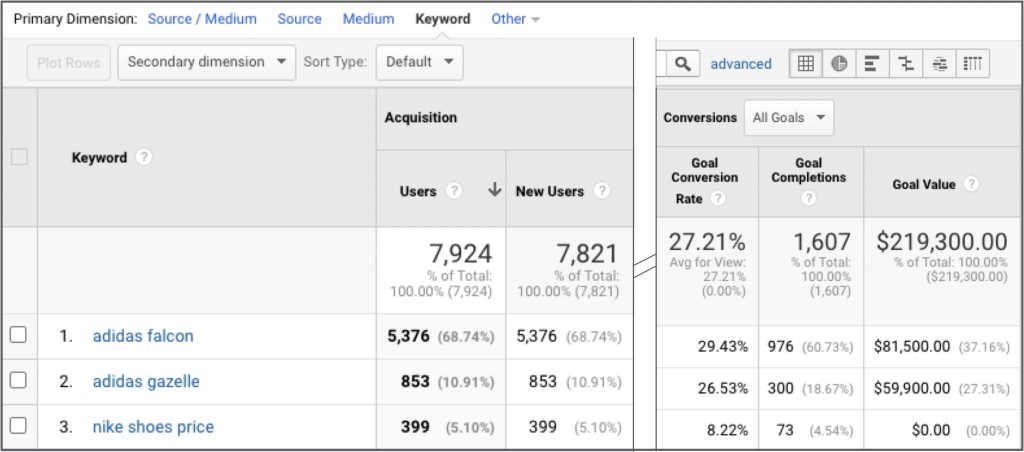An organic keyword is a keyword used by a person to find your website without clicking on an ad.
Organic keywords, unlike paid keywords, are not purchased by digital marketers for paid search marketing campaigns.
In this article, I will show you how to pinpoint your top organic keywords.
Organic keywords and SEO
Organic search is a valuable and sustainable marketing channel.
Every day, billions of searches take place.
To claim a portion of that organic traffic, you need to optimize for organic keywords.
You can make it easy for Google crawlers to understand your website by using a focus keyword on each page.
This has two benefits: it lets people know what to expect from the page and it informs the algorithm about who and what the page is for.
Google enables a better user experience by matching a person’s intent with the appropriate page on the web. Your page will have no chance of being that page unless it is optimized accordingly.
This is why keyword research is important.
You need to find the keywords that people use when looking for information or products.
Best approach to organic keyword research
It is not enough to choose high volume keywords from Google Keyword Planner.
You need to use keyword tools to extract keyword data.
The first step is to go to Google Analytics.
Acquisition | Overview | Organic Search.
If under the keyword column you see (not provided) and (not set), you will need to unlock these first.
Once you have unlocked these keywords by using Keyword Hero your view will look like this:

With all keywords unblocked (not provided) will be less than two percent of the top organic keywords.
Remember these are the keywords used by people to find your website without clicking on an ad.
Optimize pages with top organic keywords
Now that you know which organic keywords people used to discover the different pages on your website you can start to optimize these pages to drive traffic and increase conversions. This will help you track keyword conversions going forward.
On-page optimization is fundamental to attracting more organic search traffic.
It is also important to create valuable resources that are highly relevant to each set of semantically related keywords.
For example, three semantically related keywords to ‘search volume,’ would be:
Search engines favor content that is new, different, and useful.
And keyword placement is important.
Hence, there are a few areas where your organic keywords should appear to improve your organic visibility. These include:
- The Url
- The title and h2 tags
- The first paragraph
- Image alt text
- The meta description
- Internal and external links
Four easy ways to optimize a web page with organic keywords
Now, let’s take a look at some steps we can take to optimize a webpage to both increase rankings and improve click-through rates.
1. Select a focus keyword
In our guide to not provided, I discuss how once you have unlocked 100% of your organic keywords you can use Google analytics to spot your quick win and money keywords.
These are the keywords that will get you faster and more qualified leads.
You can see how this might work for an ecommerce merchant.

Once you know which keywords have the highest conversion rates you can begin to integrate these focus keywords into different pages.
There is no point using a targeted keyword that has high search volume and decent metrics but once you take a look at Google Analytics you notice that this keyword has never led to a conversion.
2. Optimize existing texts
Next I try to optimize the rest of the text on the page. These are usually small changes to avoid negatively impacting the conversion rate.
I look for ways to include variations of organic keywords without forcing them into the text and negatively affecting readability.
Try to use the organic keywords in a natural way. Remember that word order and plurals don’t matter.
3. Update content regularly
One strong indicator for Google’s algorithm is if your content is updated regularly. Search engines appreciate fresh content and it’s no different for a landing page.
Regularly updated content is viewed as one of the best indicators of a site’s relevancy, so be sure to conduct quarterly content audits and make updates as required.
4. Update metadata with top organic keywords
Each page on your site contains a space between the <head> tags to insert metadata, or information about the contents of your page. Search engines use metadata from meta tags to understand additional information about the webpage.
They use this information for ranking purposes to display snippets in search results, and sometimes they can ignore meta tags. However, it is important for you to review and update metadata with new and relevant organic keywords.
Organic keyword optimization checklist
Use the following list to evaluate the essential on-page SEO factors for landing pages.
Keyword mapping
Page uses one of your top organic keywords found in the previous section, along with 2-3 long-tail keywords.
Keyword density is no longer relevant.
Search intent
Page has a clear focus and goals. Content is aligned with Google’s search features (eg., images, featured snippets, people also ask, etc.).
Duplicate content
Page does not cannibalise other landing pages on the website.
Page title
Page uses one <h1> tag, which includes the focus keyword.
Subheadings
Page uses <h2> – <h4> tags to separate topic ideas. Header tags flow well when read on their own and include at least one focus keyword.
Readability
Page uses simple sentences, avoids jargon, acronyms, and uses the active voice.
Image alt descriptions
At least one of the images alt texts contains the focus keyword.
Internal and external links
Internal anchor texts do not contain the focus keyword. External links are to high domain authority sites and open in a new window.
Title tags
Do not exceed the 60 character limit, includes focus keyword, and ends with a brand keyword.
Meta description
Does not exceed 160 character limit and is unique to each page.
Urls
Uses hyphens, lowercase letters and contains the focus keyword.


